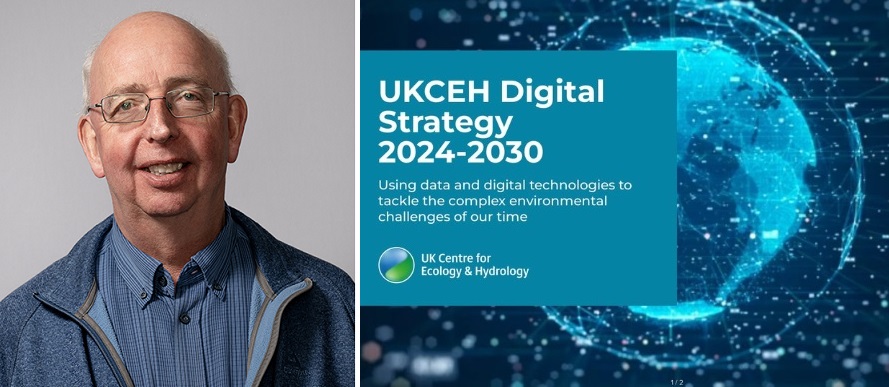The UK Centre for Ecology & Hydrology (UKCEH) is today launching its first digital strategy, setting out how we will use digital and data technologies to tackle complex global environmental challenges. Professor Gordon Blair, UKCEH’s Head of Environmental Digital Strategy, explains how a series of exciting advances in data science and artificial intelligence (AI) will deliver new insights…
Back in 2007, Jim Gray, a leading thinker in computer science, spoke about the fourth paradigm of science – that is data-intensive science – which builds on and integrates previous science epochs based on empiricism, theory and computation.
Seventeen years later, this vision is materialising as various technological developments are coming together to create the right conditions for data-intensive science to blossom. As scientists, we now have an unprecedented amount of data available to us from satellites, drones, a myriad of ground-based instruments, and data mined from the World Wide Web.

With the advent of of ‘exascale’ computing, capable of executing extremely complex functions with increased speed and precision, we now have the capability to carry out predictions based on these data and on our process understanding. Moreover, advances in data science and AI are giving us the tools to dig deep into these data and discover potential new patterns and insights.
Against this backdrop, I am delighted to be able to launch UKCEH’s first digital strategy, as we seek to harness the power of technological developments in pursuit of our unique brand of integrative and collaborative environmental science across land, water and air. We need new tools to deliver our science ambitions as we respond to the climate and biodiversity crises, and I am convinced that digital technologies have a huge amount to offer in this space.
For example, advances in digital research infrastructure are enhancing the discoverability, accessibility and interoperability of environmental data and driving more open and reproducible scientific discovery. Concurrently, advances in cyber-physical systems and AI are enabling us to develop digital twins of complex environmental phenomena. Digital technology also empowers us to visualise and present information to stakeholders in rich and varied ways, supporting decision-making and policy formulation.
It is important, though, as we embrace digital innovation to remain mindful of the environmental impact of such technologies encompassing energy consumption, carbon emissions and use of other resources such as water, and to seek technological solutions that are sustainable and aligned with the UKCEH’s environmental ethos.
Further information
The key focuses of UKCEH’s digital strategy are:
- Developing holistic solutions integrating land, air and water science
- Harnessing new technologies
- Building digital capacity and skills
- Pioneering the use of digital and data technologies to understand and manage the natural environment
- Delivering fair, open access to data
- Driving the future of environmental modelling
- Driving the future of environmental monitoring
- Sustainability
UKCEH’s Digital Strategy is available at ceh.ac.uk/digital-strategy